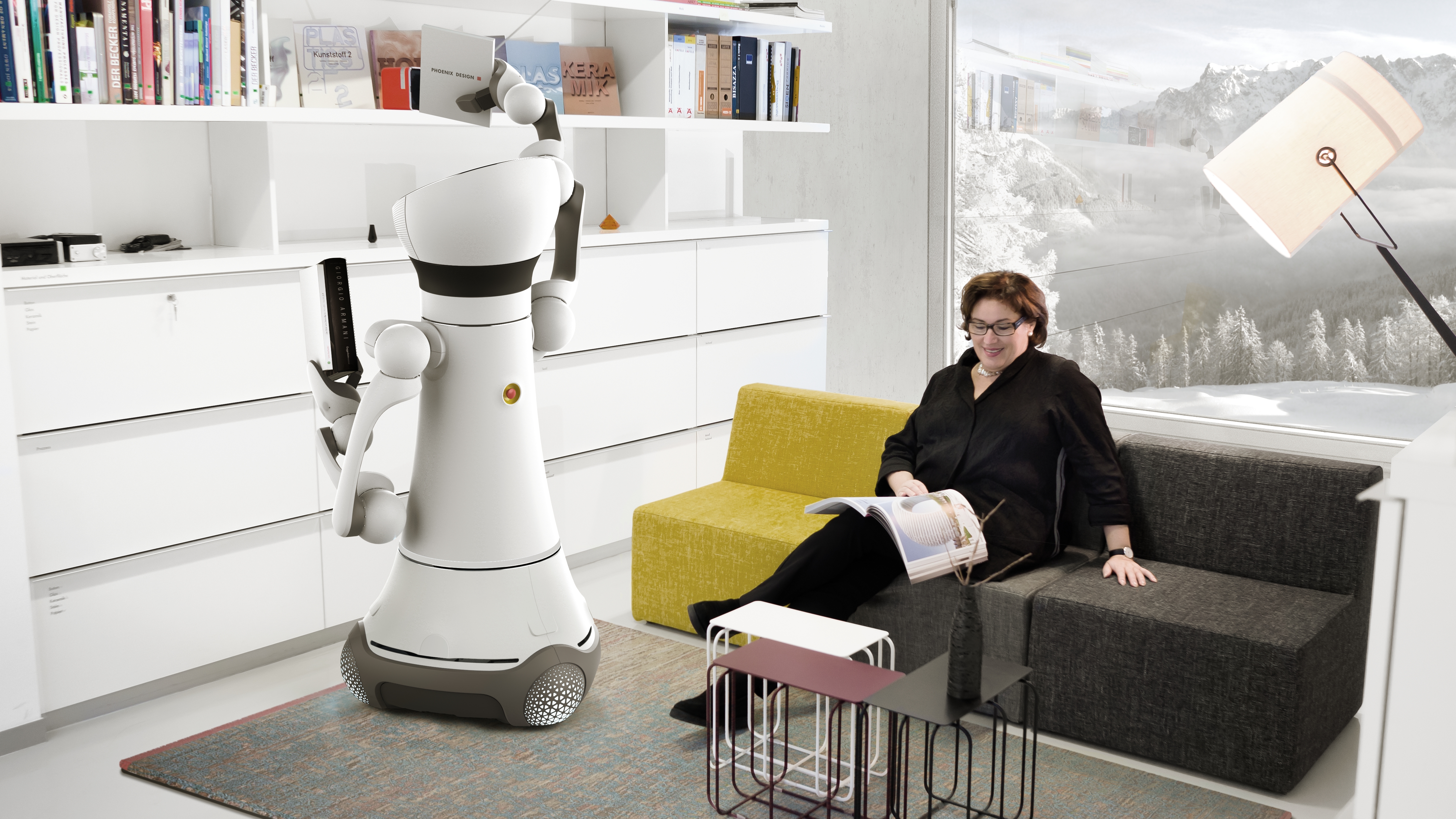Background
In 2030, four million elderly people in Germany will be in need of care. Professional care staff are already in short supply; solutions for easing some of the burdens on the care staff in the respective institutions must therefore be found. One potential solution approach with a high future potential are assistance robots that can help elderly people with everyday or household chores or provide additional support in care homes.
Project
To ensure that assistance robots used in geriatric wards are able to provide customer-focused and effective assistance, they must be able to interact with humans as faultlessly as possible and in a way that meets their expectations. The aim of the collaborative project ASARob (»Attention-sensitive assistance robot«) is therefore the implementation of a reliable attention recognition and control system for the human-robot interaction.
In this project, the Fraunhofer IMW researchers are concentrating on the user-focused design of the assistance robot, as well as on the ethical, legal and social implications that need to be taken into account in the context of assistance robot solution in the geriatric care area. For this purpose, they will develop scenarios and identify the needs of all user groups in expert interviews and focus groups. On the basis of the respective results, the Fraunhofer IMW team will then formulate recommendations on how to design assistance robots in a way that is user-focused. It will also look into the value drivers and the user willingness to pay in the form of a survey conducted with experts, clinics and care homes in order to ensure an early market-focus for the assistance robot.

